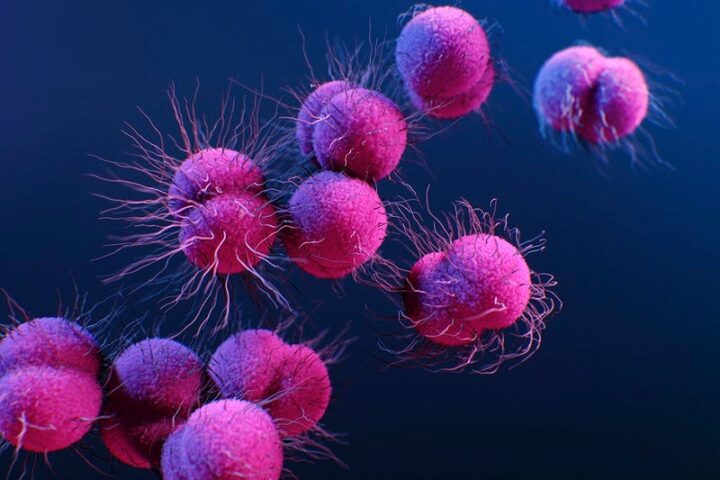
A Guide to Essential Medical Equipment for Emergencies : Empowering Home Preparedness
May 3, 2024
Can Avocado Consumption Reduce Diabetes Risk? and importance of Avocado in Diet.
May 7, 2024Vitamin D’s Influence on Gut Microbiome Enhances Cancer Immunotherapy: Exploring New Avenues in Cancer Treatment
In recent years, the potential of vitamin D in cancer prevention and treatment has garnered significant attention from researchers. A novel study from The University of Manchester sheds light on the role of vitamin D in balancing the gut microbiome, thereby enhancing the effectiveness of cancer immunotherapy. Let’s delve into the key insights and implications of this groundbreaking research.
Unraveling the Impact of Vitamin D on Cancer Immunotherapy
Immunotherapy is a revolutionary approach to cancer treatment, harnessing the body’s immune system to effectively combat cancer cells. However, while immunotherapy has shown remarkable success in various cancers, its efficacy varies among individuals. Understanding the factors influencing immune responses to cancer is crucial for optimizing treatment outcomes.
Dr. Evangelos Giampazolias and his team at The University of Manchester embarked on a study to explore the interplay between vitamin D, the gut microbiome, and cancer immunotherapy. Their research, published in Science, unveils a compelling link between vitamin D levels, gut microbial composition, and immune responses to cancer.
Vitamin D: A Catalyst for Gut Microbiome Balance
The study’s findings suggest that vitamin D is pivotal in modulating the gut microbiome, particularly by promoting the proliferation of beneficial bacteria such as Bacteroides fragilis. This microbial shift triggered by vitamin D supplementation was associated with enhanced anti-cancer immune responses in mouse models.
Implications for Cancer Treatment
The implications of this research are profound. By elucidating the connection between vitamin D, the gut microbiome, and cancer immunotherapy, the study paves the way for novel therapeutic strategies. Integrating vitamin D supplementation into cancer treatment regimens holds promise for augmenting the efficacy of immunotherapy, potentially improving patient outcomes.
Expert Perspectives on the Study
Medical experts have hailed this study as a significant advancement in cancer research. Dr. Anton Bilchik, a renowned surgical oncologist, underscores the groundbreaking nature of the findings, emphasizing the potential of vitamin D in enhancing immune responses to cancer.
Similarly, Dr. Shama Farooq, a distinguished neuro-oncologist, highlights the implications of this research for cancer treatment and prevention. She underscores the importance of further investigation into optimizing immune responses through vitamin D supplementation.
Guidance on Vitamin D Supplementation
In light of these findings, individuals may wonder about the optimal approach to vitamin D supplementation for cancer prevention and treatment. While more research is needed to establish definitive guidelines, experts recommend ensuring adequate vitamin D levels within the healthy range for overall health benefits.
According to Dr. Bilchik, maintaining vitamin D levels within the recommended range is essential not only for potential cancer prevention but also for overall bone health and well-being. Dr. Farooq echoes this sentiment, emphasizing the importance of maintaining optimal vitamin D levels as part of a comprehensive approach to cancer risk reduction.
Incorporating Ancient Grains for Diabetes Management: Promising Insights
In addition to vitamin D’s role in cancer treatment, recent research highlights the potential benefits of ancient grains in managing type 2 diabetes. Ancient grains such as oats, brown rice, and millet have emerged as promising dietary interventions for improving metabolic health and blood sugar control in individuals with diabetes.
Ancient Grains: A Boon for Diabetes Management
Studies indicate that ancient grains, characterized by their rich phytochemical and fiber content, offer distinct advantages for diabetes management. These grains, including oats and buckwheat, have been associated with improved glucose metabolism and cholesterol levels, making them valuable additions to diabetes dietary plans.
Expert Recommendations on Ancient Grain Consumption
Medical experts advocate for the inclusion of minimally refined ancient grains in diabetes dietary patterns. Dr. Avantika Waring, an esteemed endocrinologist, underscores the role of phytochemicals in ancient grains in promoting metabolic health and mitigating oxidative stress.
Registered dietitian Eliza Whitaker emphasizes the importance of prioritizing whole, unrefined grains over processed alternatives for optimal diabetes management. Incorporating ancient grains into a balanced diet, rich in vegetables and lean proteins, offers a holistic approach to diabetes care.
Balancing Dietary Choices for Diabetes Management
While ancient grains offer promising benefits for diabetes management, individuals should approach dietary decisions holistically. Dr. Waring advises maintaining a balanced diet comprising vegetables, lean proteins, and whole grains to support overall metabolic health.
In conclusion, the integration of vitamin D supplementation and ancient grains into dietary strategies holds immense potential for enhancing cancer treatment and diabetes management. Continued research into these areas promises to unlock new avenues for improving patient outcomes and advancing holistic approaches to health and well-being.
FAQs


